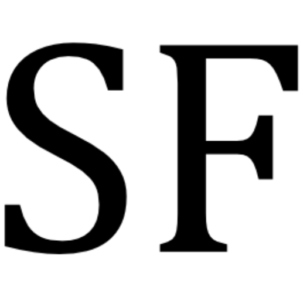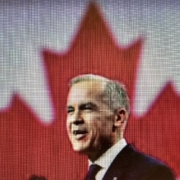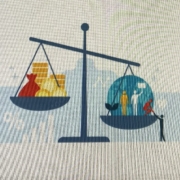Taking a Complexity Perspective on Canada’s Challenges, Part IV: Who Are We Becoming?
In this part of my series, I want to consider a question that complexity theorist Doug Griffin often said was central for any group trying to get things done in a complex world:
“Who are we becoming?”
The key word here is ‘we’. Earlier in this series, I suggested that what happens in our complex world is the result of what all of us do as we interact with one another and with the natural world. From these countless interactions, patterns emerge that shape how we continue to relate to each other.
Answering the question of who we are becoming requires looking at both:
– the patterns of relationships that have already formed, and
– what we are doing now, individually and collectively, that will influence our shared future.
The Pull of Individualism
The dominant pattern in our society—particularly in white settler society—is individualism. It often ignores the needs of the community.
We live in a time of rights without corresponding responsibilities. A time when we are encouraged to build our personal brand, where success or failure is seen as the product of personal effort alone—never the support of others.
The message is: be all you can be, as an individual.
– Businesses are urged to focus on short-term gains for shareholders, regardless of impacts on employees, customers, or future generations.
– The common good is devalued because it cannot be easily measured in financial terms and its benefits rarely reach those at the top of the food chain.
– Systemic inequality is minimized, denied, or ignored.
In other words: individualism rules, collective action is discouraged, and shared responsibility is discounted.
And yet—we still live in a complex, interconnected world. We are inescapably entangled with one another. Pretending otherwise does not make that entanglement disappear.
Neoliberalism and Its Flaws
This brings us back to what I discussed in Part II: the dominant pattern of neoliberalism. A defining feature—and, in my view, its fatal flaw—is the focus on the individual at the expense of the collective.
Here, I draw on my reflections on Alex Himelfarb’s excellent book Breaking Free of Neoliberalism: Canada’s Challenge.
Himelfarb explains how early neoliberals framed individualism as the antidote to communism and fascism. Margaret Thatcher captured the spirit of the movement when she declared: “There is no such thing as society—only individuals and families.”
This insistence on self-reliance and self-interest may sound compelling, but it is deeply flawed.
Complexity Rejects “Either / Or” Thinking
Complexity science teaches us that dualistic thinking—reducing everything to either X or Y—is misleading. More often, we live in paradoxes: two self-contradictory statements that are both true at the same time.
This is especially true in the relationship between the individual and society.
In my book Managing in Complexity: How Our Fears of Uncertainty Can Hurt Us and What to Do About It, I describe how individuals are formed through their interactions with others. We are not atomistic. Our very identities develop through dynamic and social processes.
Put simply:
– Individuals do not exist without society.
– Society does not exist without individuals.
The “I” and the “we” are paradoxically two sides of the same coin, continually shaping each other. No one achieves anything entirely on their own. To discount society is to discount the individual—and vice versa.
Ubuntu philosophy expresses this beautifully: “I am because we are.”
Externalities and the Polycrisis
When issues of the common good—climate change, social justice, democracy, customer safety—are raised, they are often dismissed as “externalities.”
Classical economics, which underpins neoliberal thinking, reassures us that the market will correct for these. But lived reality tells us otherwise. If externalities had been corrected, we would not now be in such a state of polycrisis.
Neoliberalism’s unanswered question should give us pause: If only the individual matters, how do we navigate living together on the same planet?
The neoliberal answer—each for themselves—creates relentless competition, extreme hierarchies, and a system where privilege accumulates over generations. This is not a bug to be fixed; it is a built-in feature.
“Because They Can”
Another core tenet of neoliberalism is removing limits. If people—or corporations—can do something, they will. Whether it harms others or not.
A crude joke captures this: “Why do dogs lick their balls? Because they can.”
This mindset explains a great deal about our current society:
– A U.S. president who holds himself above the law and gets away with it.
– A presidential candidate boasting about not paying taxes, and openly grifting while in office.
– The absurd assumption that infinite growth is possible on a finite planet.
– A world in which one’s worth is measured by one’s bank account.
– Status competition that drives overconsumption and rising inequality.
The fatal flaw of neoliberalism is its refusal to account for our inescapable interdependence. Whether we like it or not, we share the same planet—and one way or another, we must find a way to live and work together.
The Threat to Democracy
Whether the dominant paradigm is hyper-individualism or hyper-collectivism, the outcome is dysfunction—and ultimately, authoritarianism.
Democracy only becomes possible when both the individual and the collective are respected, valued, and invested in. Rights must come with responsibilities.
Instead, our culture venerates wealth and power, tolerates monopolistic behaviour, and equates success with dominance.
The Cost of Lost Trust
One direct result of this individualistic drift is a profound loss of trust—in institutions, in government, and in each other.
Trust is how we manage our relationships. It is the confidence that expectations will be met. It is also imperative for defining how we live and work together, what constitutes the common good, and how we negotiate who we are becoming.
Without trust, governance becomes harder and more expensive:
– Policing, enforcement, and regulation balloon.
– Governments over-regulate to prevent abuse.
– Citizens become cynical and disengaged.
Trust, once lost, is hard to rebuild. As the saying goes: “Trust arrives slowly, but leaves in a Ferrari.”
And yet rebuilding trust is essential if Canada is to chart a different course as we face today’s polycrisis and seek to build a Canadian economy less dependent on the U.S.
Paraphrasing Todd Bolsinger in Canoeing the Mountains: if you aren’t trusted when on the map, you haven’t a chance of being trusted off the map.
Well, the polycrisis we are facing means we are well and truly off the map—and declining levels of trust matter more than ever.
Where Do We Go From Here?
So, who are we becoming as Canadians?
– Will we follow the U.S. path, where wealth is concentrated in the hands of the few?
– Or will we strive for shared prosperity and social cohesion?
Even if we neglect the common good, there is still a “we.” Our interdependence does not disappear. And the responsibility for determining who we will become is not only on Mark Carney’s shoulders—it rests with each of us.
We are in this together—whether we admit it or not.
Looking Ahead
In Part V of this series, I will explore what complexity science can teach us about the social issues Canada must address as we collectively negotiate who we are becoming.









